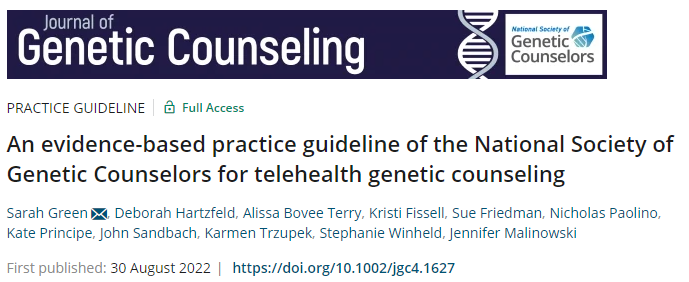
Telehealth genetic counseling predates the COVID-19 pandemic but its utilization significantly increased after the start of the pandemic. Studies show for many patients, this service delivery model is comparable to in-person services. Check out NSGC’s recent best practice guidelines for providing telehealth genetic counseling services.
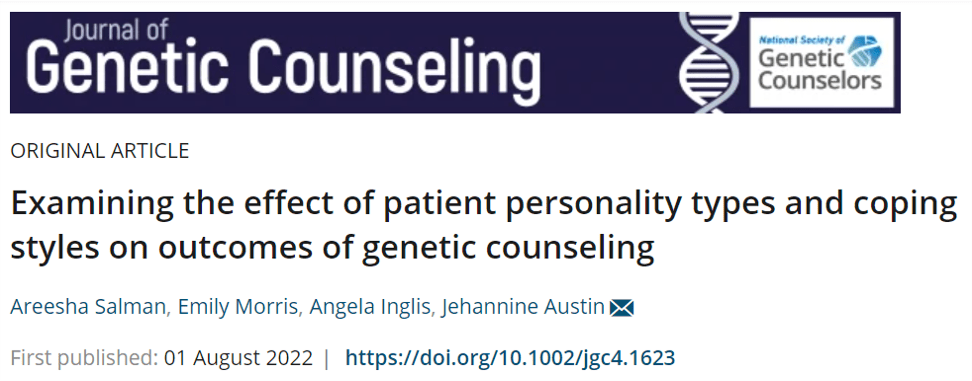
An important component of genetic counseling is tailoring sessions to a patient’s prior knowledge and needs. However, it is clear that genetic counseling is not equally beneficial to all patients. This study explores how patient personality types and coping styles may affect GC outcomes.
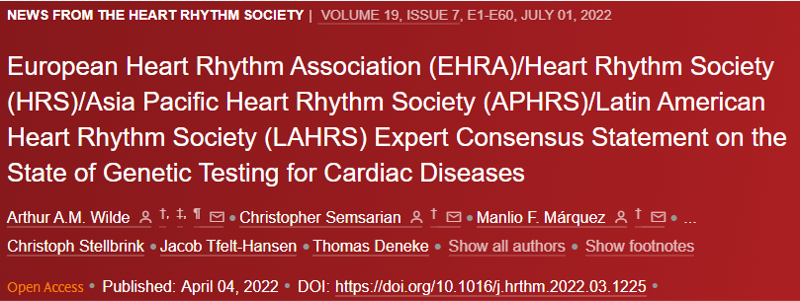
A multi-society collaborative expert consensus statement on genetic testing for cardiac disease was released this month. This is an update from the 2011 HRS/EHRA guidelines on channelopathies and cardiomyopathies to include new data and additional indications such as congenital heart disease, coronary artery disease, and sudden cardiac death. What updates do you find most interesting?
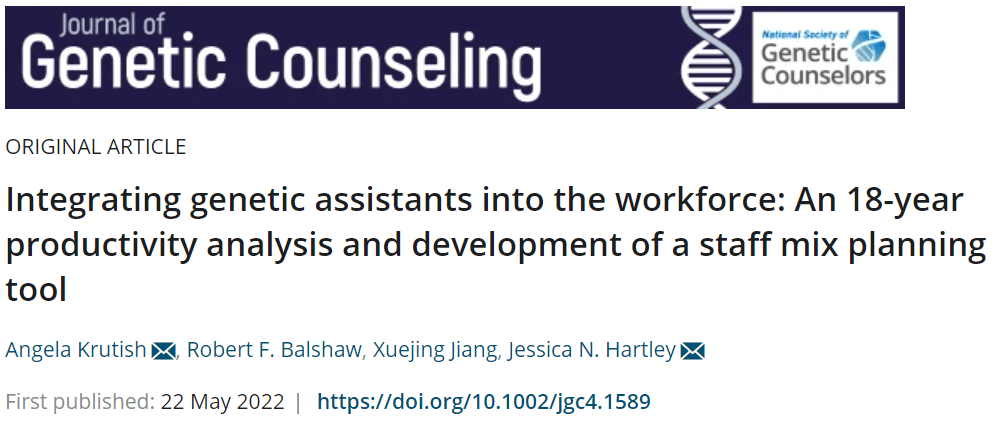
Genetic counseling assistants have been utilized in our profession especially over the past few years. Krutish et al.’s article investigates how the addition of genetic counseling assistants in multiple specialties has helped institutions practice at the “top of their license” and increase volumes. If you are trying to justify a GCA position at your institution, this article is a great place to start and provides information on a new tool for you to use called ClinMix.

Have you ever wondered about the role of healthcare interpretation in genetic counseling? This article by Wang et al. used a quantitative approach to allow for sampling of larger populations and to simultaneously understand current perspectives of genetic counselors and healthcare interpreters regarding each other’s and their own roles within a genetic counseling session.

Now more than two years into the COVID-19 pandemic, Hassel et al describe their team’s experience communicating and explaining COVID-19 serum antibody results to patients and physicians. This again highlights the versatility of genetic counselors and our unique training.
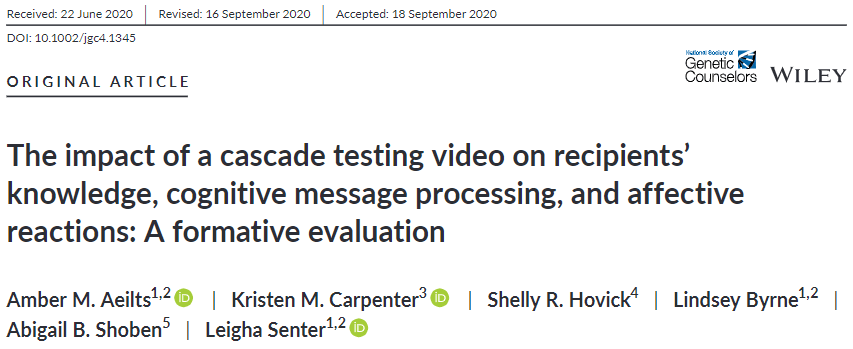
Digital health tools are making a big impact on the way genetic counselors provide education to patients and their families. Read this publication to learn about the role of an animated video in cascade testing.
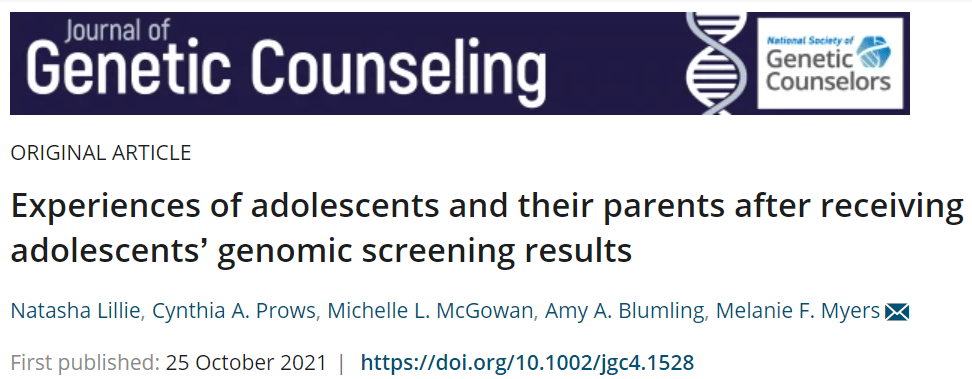
Do you think we should test adolescents for adult-onset conditions and/or carrier status? Despite many policies stating we should not, very few studies have asked this patient population what their thoughts are and how they have been impacted. Lillie et al.’s article explores 15 adolescents’ and their parents’ experiences with receiving these types of results.
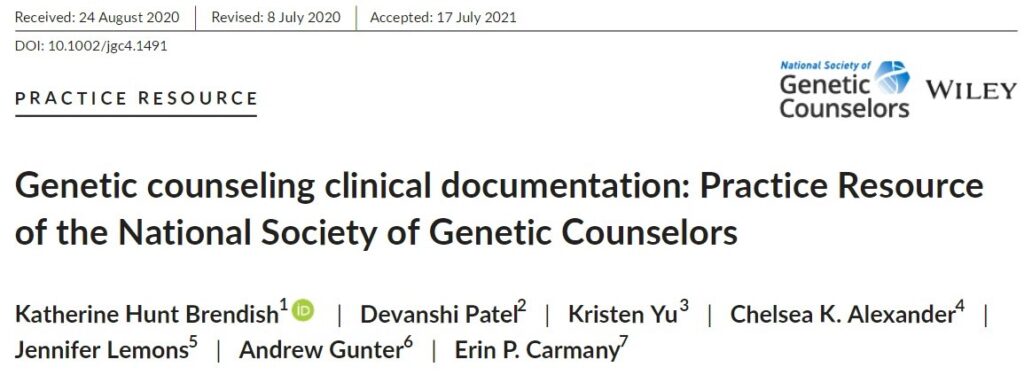
Clinic notes, patient letters, and results summaries! Oh my! Check out NSGC’s latest resources on how to write efficient and comprehensive documentation for the ever increasing number of patients seeking genetics services.

Since 2010, chromosomal microarray (CMA) was recommended as the first line genetic test in children with congenital anomalies and intellectual/developmental disability. Last week, however, ACMG recommended that exome or genome sequencing be instead considered as a first- or second-tier test. Read more about their justification here.
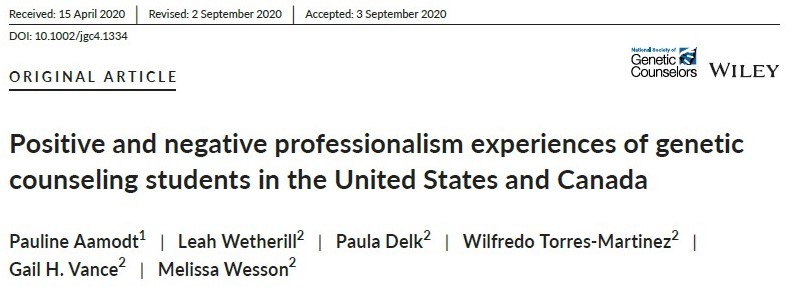
Most genetic counselors will interact with genetic counseling students in some capacity – as program leaders, instructors, supervisors, and/or mentors. Our interactions will have a lasting impact on students. Check out this publication in the Journal of Genetic Counseling that explores student experiences of professionalism and how they impact training!

A team out of Texas asked the question “How much downstream revenue do cancer genetic counselors (GCs) generate when they identify patients with hereditary breast and ovarian cancer (HBOC) and Lynch Syndrome (LS) pathogenic variants?” See what they found here.
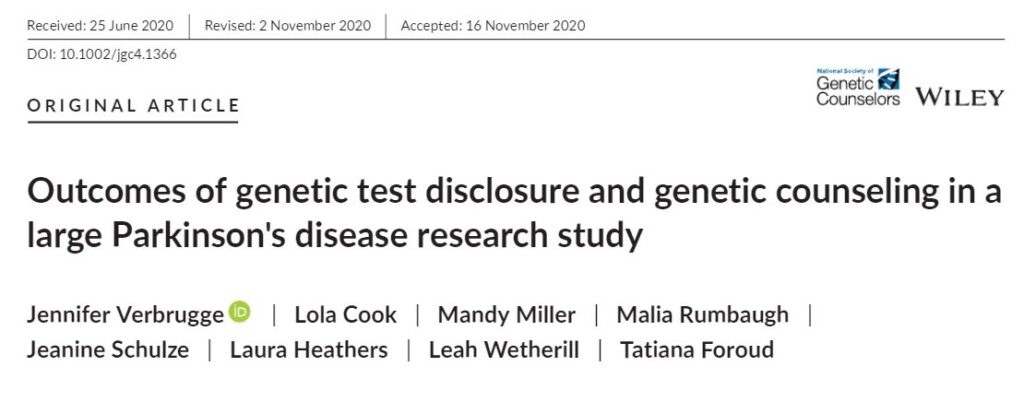
Individuals and families affected by Parkinson’s disease (PD) are increasingly interested in genetic testing for the condition. This study explores the psychological impacts of and satisfaction with genetic counseling and testing for PD.
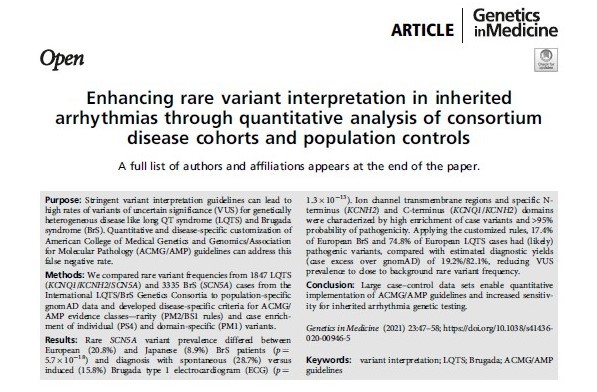
February is American Heart Month. Take a look at how one group is using case-control data sets to reduce the number of variants of uncertain significance received on inherited arrhythmia genetic testing.
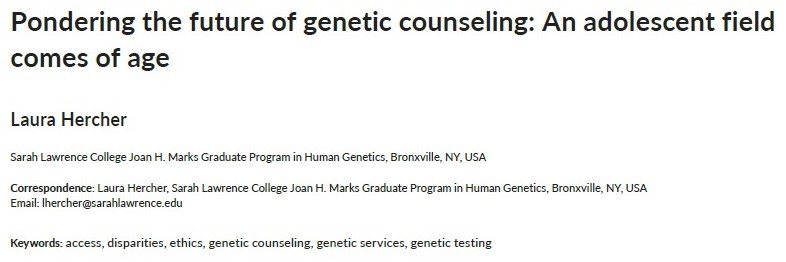
Around 50 years ago, the first Master degrees for genetic counseling were awarded. This publication takes a look down memory lane and highlights the impact this field has had and continues to have in healthcare. Here’s to a new year and continued growth!

Newborn screening helps identify disorders that benefit from early diagnosis and treatment, and the conditions screened for vary widely by state. Check out this article, published last month in Genetics in Medicine, highlighting the feasibility of newborn screening for metachromatic leukodystrophy.
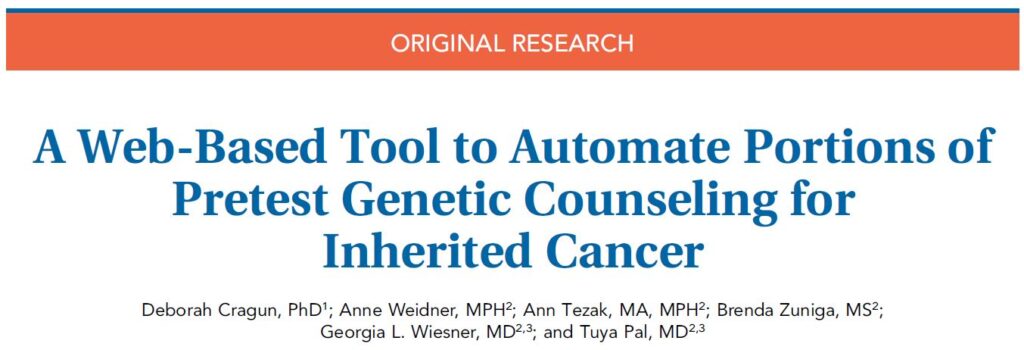
During breast cancer awareness month, it is important to acknowledge limitations in patient access to genetic counseling and testing for BRCA1/2 and other cancer risk genes. This study looks at alternative ways to deliver pre-test information to these patients. Check it out here.
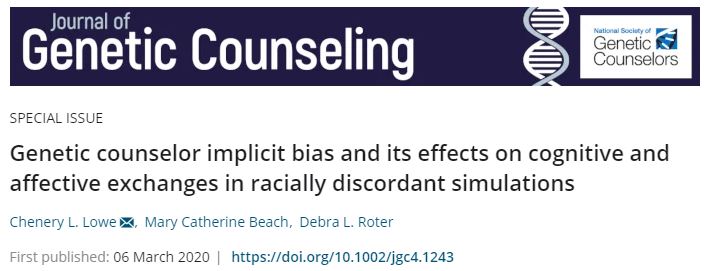
Published in March 2020, this timely publication by Lowe et al expands on implicit racial bias. Specifically, it studies genetic counselors’ representation of cognitive and emotional processing in simulated clients. Check it out here.